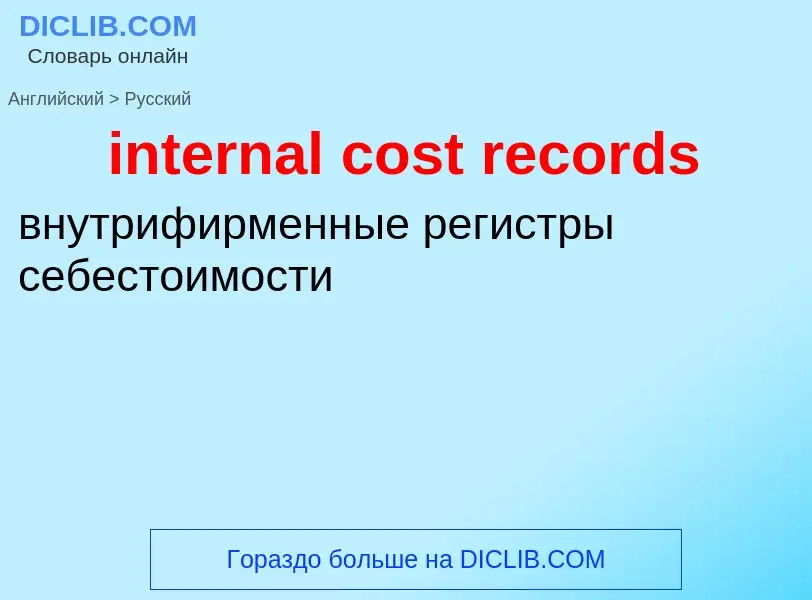Перевод и анализ слов искусственным интеллектом ChatGPT
На этой странице Вы можете получить подробный анализ слова или словосочетания, произведенный с помощью лучшей на сегодняшний день технологии искусственного интеллекта:
- как употребляется слово
- частота употребления
- используется оно чаще в устной или письменной речи
- варианты перевода слова
- примеры употребления (несколько фраз с переводом)
- этимология
internal cost records - перевод на русский
аудит
внутренняя проверка (процедура внутреннего аудита; проверка какой-л. деятельности или конкретной операции, осуществляемая руководством компании, в отличие от проверки, проводимой независимыми аудиторами, регулирующими органами и т. д. (напр. проверка, предпринимаемая руководством компании для выявления фактов мошенничества и ошибок в учете); является элементом внутреннего контроля)
антоним
Смотрите также
бухгалтерский учет
внутренний контроль (средства и методы обеспечения эффективной деятельности организации и сохранности ее активов, используемые руководством компании)
антоним
2) контроль финансовых учреждений над промышленной компанией
Определение
Википедия
In microeconomic theory, the opportunity cost of a choice is the value of the best alternative forgone where, given limited resources, a choice needs to be made between several mutually exclusive alternatives. Assuming the best choice is made, it is the "cost" incurred by not enjoying the benefit that would have been had by taking the second best available choice. The New Oxford American Dictionary defines it as "the loss of potential gain from other alternatives when one alternative is chosen." As a representation of the relationship between scarcity and choice, the objective of opportunity cost is to ensure efficient use of scarce resources. It incorporates all associated costs of a decision, both explicit and implicit. Thus, opportunity costs are not restricted to monetary or financial costs: the real cost of output forgone, lost time, pleasure, or any other benefit that provides utility should also be considered an opportunity cost.






